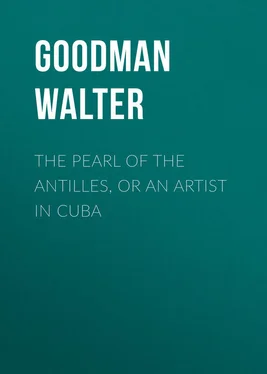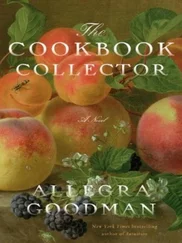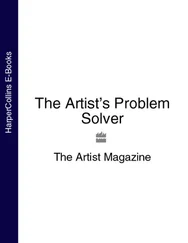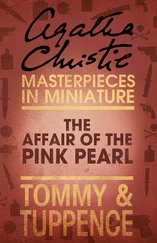Walter Goodman - The Pearl of the Antilles, or An Artist in Cuba
Здесь есть возможность читать онлайн «Walter Goodman - The Pearl of the Antilles, or An Artist in Cuba» — ознакомительный отрывок электронной книги совершенно бесплатно, а после прочтения отрывка купить полную версию. В некоторых случаях можно слушать аудио, скачать через торрент в формате fb2 и присутствует краткое содержание. Жанр: foreign_antique, foreign_prose, Путешествия и география, на английском языке. Описание произведения, (предисловие) а так же отзывы посетителей доступны на портале библиотеки ЛибКат.
- Название:The Pearl of the Antilles, or An Artist in Cuba
- Автор:
- Жанр:
- Год:неизвестен
- ISBN:нет данных
- Рейтинг книги:4 / 5. Голосов: 1
-
Избранное:Добавить в избранное
- Отзывы:
-
Ваша оценка:
- 80
- 1
- 2
- 3
- 4
- 5
The Pearl of the Antilles, or An Artist in Cuba: краткое содержание, описание и аннотация
Предлагаем к чтению аннотацию, описание, краткое содержание или предисловие (зависит от того, что написал сам автор книги «The Pearl of the Antilles, or An Artist in Cuba»). Если вы не нашли необходимую информацию о книге — напишите в комментариях, мы постараемся отыскать её.
The Pearl of the Antilles, or An Artist in Cuba — читать онлайн ознакомительный отрывок
Ниже представлен текст книги, разбитый по страницам. Система сохранения места последней прочитанной страницы, позволяет с удобством читать онлайн бесплатно книгу «The Pearl of the Antilles, or An Artist in Cuba», без необходимости каждый раз заново искать на чём Вы остановились. Поставьте закладку, и сможете в любой момент перейти на страницу, на которой закончили чтение.
Интервал:
Закладка:
As evening advanced, we prepared to return to our temporary home, where a good dinner doubtless awaited us, with a cup of café noir to follow, and correspondence – ah! my friends never missed a mail – to open and to devour.
'Alto allá!' The ominous command to halt where we stood, still rings in my ear. A party of soldiers, with pointed muskets and fixed bayonets, ran with all speed in our direction.
'Car-amba!' Were we the object of their precipitation? We were!
They conducted us to an eminence, where stood a podgy, high-shouldered, short-necked man with a squeaky interrogative voice and gold spectacles. This was the commandant. Without explanation, that officer, in brief words, ordered us to be arrested.
The soldiers obeyed. They bandaged our eyes with handkerchiefs. They led us along hollow-sounding alleys; beneath echoing archways; down scores of stone steps; through mouldy passages. Lower yet, where a strong flavour of cooking assailed our sense of smell. A couple more downward flights, and then we paused – heard a jingling of big keys – an opening of ponderous doors – and here we were.
Here, in a subterranean vault, I know not how many feet below sunlight. The air is close and vaporous; the domed chamber is damp and musty. They have divested us of all our portable property save a few cigarettes which we have secreted in a dark corner, and there is nothing to be had in the way of refreshment for love or money.
Yes, for money. I have bribed the sentinel, who occasionally eclipses our square of window, with all my ready cash, and he has brought us contraband cups of weak coffee. Will he treat our dark domestic as well? We try him, and find that he won't.
What's o'clock? We have no means of ascertaining this, as Phœbus, who might have suggested the time of day, is a long way out of sight. Our sentinel says it is early morning.
Hark! A sound of many footsteps; a rattling of arms and keys. Enter our military jailer with a dozen soldiers to release us from our present quarters. Our eyes are bandaged as before, and after passing up several flights of steps in another direction, our sight is restored: the scene changes, and we are discovered, like the Prince of Denmark, upon another part of the platform. Our faithful vassal is with us, looking as much like a ghost as it is possible for a negro to appear. They have tied his arms behind him with cords, and serve us in the same manner; while eight soldiers encircle us at respectful distances, and deliberately proceed to load their weapons. The negro trembles with affright, and falls on his knees. Misericordia! they are going to shoot us, he thinks; for he is ignorant of the Spanish custom of loading in the presence of the prisoner before escorting him from one jail to another.
To another? Santo Dios! Then we are prisoners still? I think of the victim of Santa Margherita and his many prisons, and begin to wonder how many years of incarceration we shall experience.
'En marcha!' Eight 'militares' and a sergeant place us in their midst, and in this way we march to town, a distance of seven miles. Our sergeant proves to be more humane than his superior, and on the uneven road pauses to screw up cigarettes for us, and, in consideration of our helpless condition, even places them in our mouths.
It is Sunday morning, and when we reach the town all good Catholics have been to high mass, and are parading the narrow thoroughfare dressed in fashionable attire. Crowds gather around us and speculate as to the particular crime we are guilty of; and, to tell the truth, our appearance is by no means respectable. Have we shot the commandant? Undermined the Morro? Poisoned the garrison? Have we headed a negro conspiracy, or joined a gang of pirates? Friends whom we recognise on our way endeavour to interrogate us, but are interrupted by the sergeant. We halt before the governor's house; but his excellency is not yet out of bed, and may not be disturbed. So we proceed to the town jail, where everybody is stirring and where they are happy to see us, and receive us with open doors. A dozen policemen, dressed in brown-holland coats, trimmed with yellow braid and silver buttons, with panama hats, revolvers, and short Roman swords, are seated on benches at the prison entrance. Passing them, we are hurried into a white-washed chamber, where a frowning functionary, in brown-holland and silver lace, with a panama on his head, and a long cigar in his mouth, sits at a desk scribbling something on stamped paper. He pauses to examine and peruse a large letter which our sergeant hands him, and which contains a statement of our arrest, with full particulars of our misdeeds. The document is folded in official fashion, is written, regardless of economy, with any quantity of margin, and is terminated by a tremendous signature, accompanied by an elaborate flourish, which occupies exactly half a page. The gentleman in brown-holland casts a look of suspicion at us, and directs a couple of policemen to search us, 'registrar' us, as he calls it, which they accordingly do; but nothing that we could dispense with is found on our persons, except the grime upon our hands and faces, and a pearl button, which has strayed during the journey, and somehow found its way into my boot.
Nothing further being required of us for the present, we are conducted into the centre of the jail to an extensive court-yard, where a crowd of prisoners of all shades and castes lie basking in the sun. We are led to one of the galleries which surround the patio, our arms are untied, and we are introduced into three different chambers.
The apartment alloted to me is spacious and airy enough, and has a huge barred window that overlooks the main thoroughfare. In these respects, at least, my quarters resemble an ordinary Cuban parlour in a private house. But the only articles of furniture are a couple of hard benches and a straw mattress; and although a Cuban parlour has a barred window, a brick floor, and white-washed walls, it has also a few cane-bottomed chairs, an elegant mirror, and a gas chandelier.
The prison in which I am confined was originally a convent, and now it is not only devoted to the use of malefactors, but also accommodates mad people, whose shrieks and wild laughter I occasionally hear.
From my window I can see into the private houses opposite, where ladies are swaying and fanning themselves in 'butacas,' or rocking-chairs, while half a dozen naked white and black children play in an adjacent room. Friends passing along the street recognise me; but I may not converse with them, or the sentry below will inform, and I shall be removed to a more secluded part of the stronghold.
I am not alone. My chamber is occupied by a native Indian, whose origin is distinguishable by his lank, jet-black hair, his gipsy-like complexion, and finely-cut nostrils. He is neither tattooed, nor does he wear feathers, beads or animals' hides; but with the exception of his face and hands (which are very dirty) he has all the appearance of a civilized being.
The Indian has been himself arrested on suspicion, but his trial has been postponed for many weary months, and he is at present quite ignorant of the charge on which he may stand accused. Having no friends to intercede for him, or golden doubloons wherewith to convince the authorities of his innocence, the poor fellow is afraid things will go hard with him.
The Indian is eloquent on the subjects of slavery and Spanish rule, both of which he warmly denounces. He is careful to remind me, that although he speaks the Spanish language, and is governed by Spanish laws, he is no more a Spaniard than is an American an Englishman. There is something in common between these nationalities, he says, whereas between a Cuban and a Spaniard there is a very wide gulf!
My patriotic friend gets so excited over these and other favourite topics that, afraid of the consequences of his conversation, I propose a smoke.
Читать дальшеИнтервал:
Закладка:
Похожие книги на «The Pearl of the Antilles, or An Artist in Cuba»
Представляем Вашему вниманию похожие книги на «The Pearl of the Antilles, or An Artist in Cuba» списком для выбора. Мы отобрали схожую по названию и смыслу литературу в надежде предоставить читателям больше вариантов отыскать новые, интересные, ещё непрочитанные произведения.
Обсуждение, отзывы о книге «The Pearl of the Antilles, or An Artist in Cuba» и просто собственные мнения читателей. Оставьте ваши комментарии, напишите, что Вы думаете о произведении, его смысле или главных героях. Укажите что конкретно понравилось, а что нет, и почему Вы так считаете.












